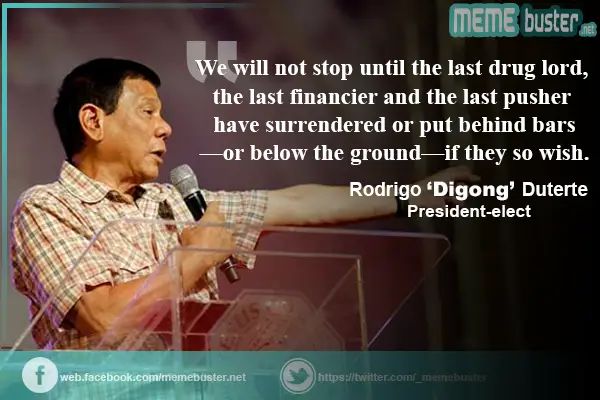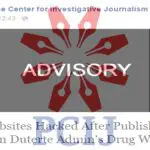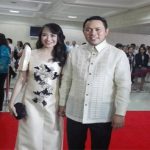After 30 days in office, what has President Rodrigo Duterte accomplished so far, being the 16th chief executive of the land?
On Peace and Order
As soon as he assumed office on June 30, he immediately placed peace and order restoration on top his national agenda. After raising the morale of the police and military, the Philippine National Police (PNP) said at least 316 suspected drug pushers and users have been killed and thousands more have surrendered from July 1 to 27.
For people wondering when the killings would stop, Duterte declared it unequivocally in his first SONA on July 25- “We will not stop until the last drug lord, the last financier and the last pusher have surrendered or put behind bars—or below the ground—if they so wish.”

Duterte also dropped names of alleged protectors of the illicit drug trade in the country, among them no less than military generals. For instance, among the named was retired General Marcelo Garbo, once a promising bet for PNP chief, and retired General Vicente Loot who is the mayor in the northern town of Daanbantayan, Cebu.
Other generals still in active service were Chief Superintendent Joel Pagdilao, Edgardo Tinio and Bernardo Diaz.
They all denied the allegations.
[ads1]
Freedom of Information
Notwithstanding his occasional dislike for the media, Duterte signed on July 24 the executive order ensuring freedom of information. This empowers all citizens to have a hand on the fight against corruption and red tape in government.
However, the EO is good only as far as data and documents in the executive branch are concerned. It does not cover information from the legislative and judicial offices, as well as independent constitutional commissions.
The list of information exempted from public access has yet to be developed.
Traffic Problems, Tax and Others
In his SONA, Duterte vowed to end the worsening traffic problems in Metro Manila by seeking emergency powers from Congress. He also promised to lower corporate and personal income taxes, eliminate inefficiency or bureaucratic red tape in government, and push the Reproductive Health Law that allows natural and artificial birth planning methods.
Ceasefire
As a gesture of being serious about reconciliation and national unity, Duterte expressed his willingness to sit down with Moro and communist rebel groups to iron out differences and be part of the country’s advancement.
To this end, Duterte announced the resumption of peace negotiations with communist groups—the Communist Party of the Philippines, National Democratic Front and New People’s Army. With the Moros, the passage of the Bangsamoro Basic Law (BBL) was highlighted, on condition that Constitutional requirements are satisfied.
The climax of his SONA was the declaration of unilateral ceasefire with communist rebels, a first since 2011. However, his initiative was not immediately reciprocated by the communists so he later gave them an ultimatum following an attack of communist rebels on militiamen in a Davao province.
The rebels did not reciprocate Duterte’s unilateral ceasefire by his deadline, prompting Duterte to revoke the ceasefire. But he, and even CPP founder Joma Sison, insisted that peace talks between the government and the communist rebels will continue.
Foreign Policies
Duterte opted for no compliance on the historic Paris treaty on climate change which he felt was unfair to a developing country like the Philippines. The treaty imposes limits on the carbon emissions of signatory countries, which Duterte said would only serve to delay or even stifle the economic gains of the country.
In a talk with US Secretary of State John Kerry 5 in Malacañang on July 27, Duterte assured him that the Philippines is ready to comply with any international agreement as long as everything is beneficial for the Philippines.
Meanwhile, the world awaits Duterte’s decision on the arbitral tribunal ruling favoring the Philippines in its claim on the Philippine West Sea against the expansive claims of China on the same.
Though having already decided not to “taunt to flaunt” the ruling, Duterte nonetheless acknowledged the efforts of former President Benigno Aquino III and his team for the victory. In fact, he valued the “ace card” that Aquino won for the Philippines by consulting ranking government officials and former presidents for advice on the matter.
No less than four former presidents sat down with him along with other officials during the National Security Council meeting: former Presidents Joseph Estrada, Fidel V. Ramos, Gloria Macapagal Arroyo and Benigno Aquino III.
Sources: (gmanetwork.com, cnnphilippines.com)
[ads3]


